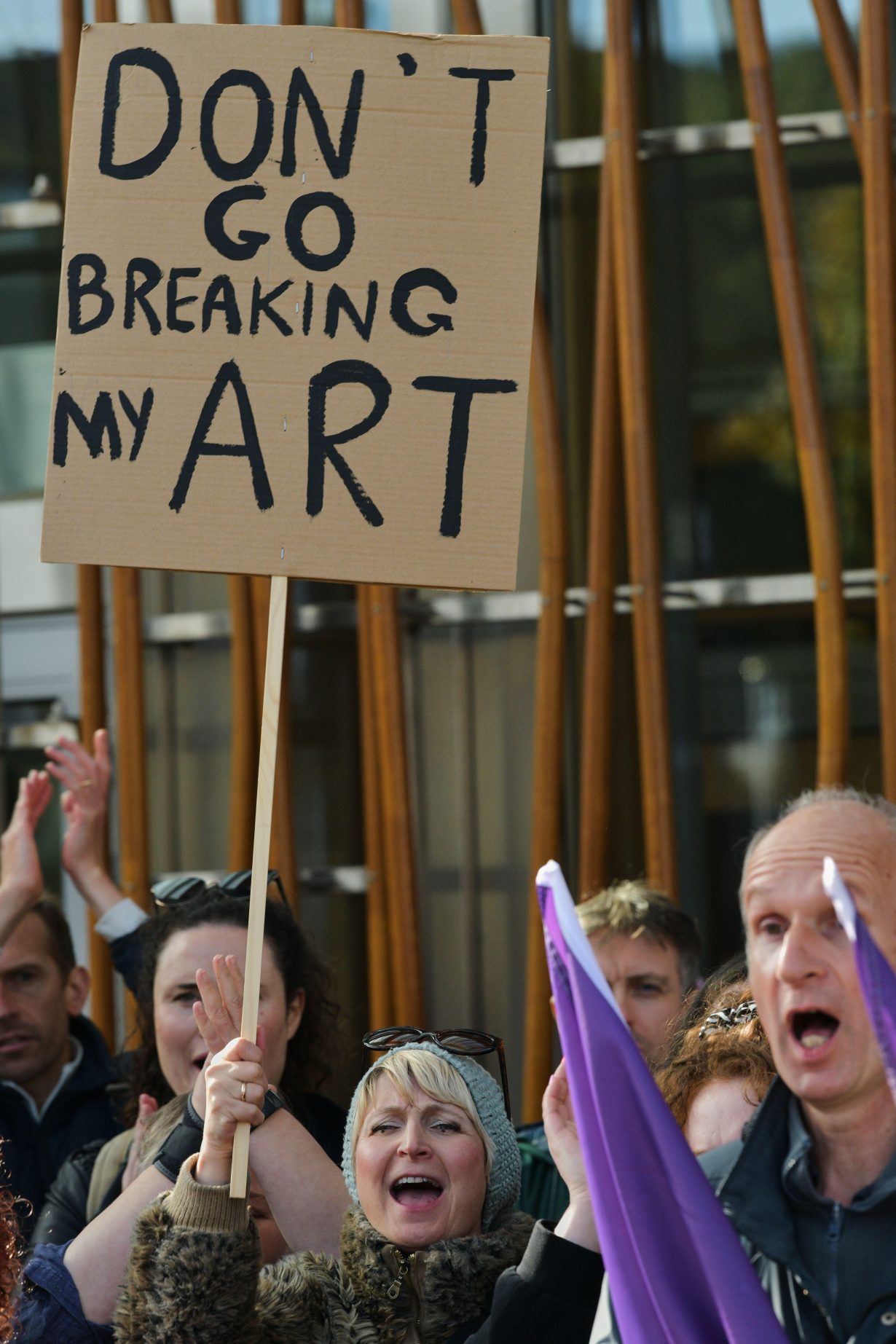The arts need funding, but will current proposals do anything more than create new gatekeepers?

In the UK visual artists don’t make a great living from their work, while arts organisations have been faced with cuts or standstill-funding in recent years. With the arrival of Keir Starmer’s Labour government in July, many in the visual-arts sector are hoping that the new administration might take a more supportive approach, after years of Conservative antagonism and indifference towards the cultural sector. In September, over 4,000 signatories, including artists Sonia Boyce and John Akomfrah, presented an open letter to the new culture secretary Lisa Nandy, offering a ‘manifesto’ of measures that might make things better for artists.
Unsurprisingly, given Labour’s much trumpeted insistence that there’s a £22bn ‘black hole’ in the public finances, an assertion that only bolsters Starmer’s expectation-dampening claim that “things will get worse before they get better”, the manifesto being presented isn’t demanding a greater public subsidy for artists. Rather, it offers a raft of proposals to make the commercial and regulatory environment more beneficial for artists and cultural organisations; not more financial assistance, then, but the carving out of certain preferential arrangements for cultural activity. For instance, there are proposals for cultural spaces to be given their own status in planning law, in order to protect artists’ studios and artist-run spaces. There’s also a proposed Tourist Levy, presumably a ‘city tax’-type charge on people staying in hotels. It has been suggested that copyright-law principles be extended to cover activities like performances, workshops and artists talks (which, when they’re recorded and slapped onto gallery websites and YouTube channels, benefit the gallery and not the artist), alongside the now ubiquitous demand for the ‘robust regulation’ of AI, and compensation for artists if their work is used to train algorithms. Right at the top of the list, though, is the demand that the government adopts a ‘smart fund’ for artists.
The Smart Fund scheme has been cooked up by a group of artist management organisations, which handle all the fees paid for in-copyright artistic content and collect royalties. DACS (the Design & Artists Copyright Society) manages licensing on behalf of artists and their estates. The Smart Fund is another levy, this time on the sales of smartphones, which would charge manufacturers ‘a small fraction’ of the value of smartphone sales. According to consumer analysts Mintel, the UK smartphone market was worth around £5.8bn in 2023, so even one percent would generate £58m, though the Smart Fund itself sees the potential for raising £250-300m a year. For context, Arts Council England’s government funding for the last financial year came to £548m, so it’s no small change.
The Smart Fund’s rationale is that creative content ends up on everyone’s phones, having been downloaded for free, which benefits Big Tech rather than artists who are put out of pocket – so it’s a Robin-Hood style scheme that, in effect, takes from the rich and gives to the poor. Yet the scheme isn’t just a straight rights-management proposal, and the rationale seems questionable. It isn’t, after all, the manufacturers of devices that profit from the sharing of copyright content, illegal or otherwise, but rather the online platforms that work through them. How fees would be distributed to actual content creators is not explained in any great detail by the Smart Fund’s advocates, but this is not the only purpose of the scheme. Alongside fees management, there would be a portion of income ‘flowing to local community projects with a focus on digital creativity and skills’, which is to say, funding grants for artists.
It’s oddly convenient that the organisations who want to control this funding are the rights-management bodies themselves, helpfully pointing out that the Fund ‘does not need to be managed by Government or use taxpayers’ money’. Of course, what appears to be a tax on Big Tech is really a tax on everyone who owns a smartphone, and while artists should have their copyright protected, the broader trend of looking for levies is more than that – it’s a way of carving out special revenues for artists out of particular markets, rather than from general government taxation. Notably, Labour thinktank the Fabian Society, which in the same month published its own manifesto ‘Arts for Us All’, champions the Smart Fund, as well as the tourist levy and a music venues ticket levy, in which big music venues would pay into a pot that would support ‘grass roots venues’, a sector now badly hit by closures.
All of these schemes raise the question of who will control funds, what the criteria will be for funding, and how managing bodies will remain accountable. That artists have been struggling, with unaffordable studios, sky-high rents and closing venues, is a consequence of a stagnant economy with very little growth and not much prosperity, and these challenges won’t be fixed by yet more taxes. But the proliferation of non-government, levy-claiming arts-funding bodies may be a sign of things to come, with artists receiving less and less support from the market or government, and the implementation of a new set of funding gatekeepers who are perhaps even less accountable to either government or the wider public. What’s certain is that the money won’t be shared out equally, benefiting all artists, but will be given only to those favoured by the new batch of decision makers and bureaucrats who will inevitably emerge to administer these new schemes.